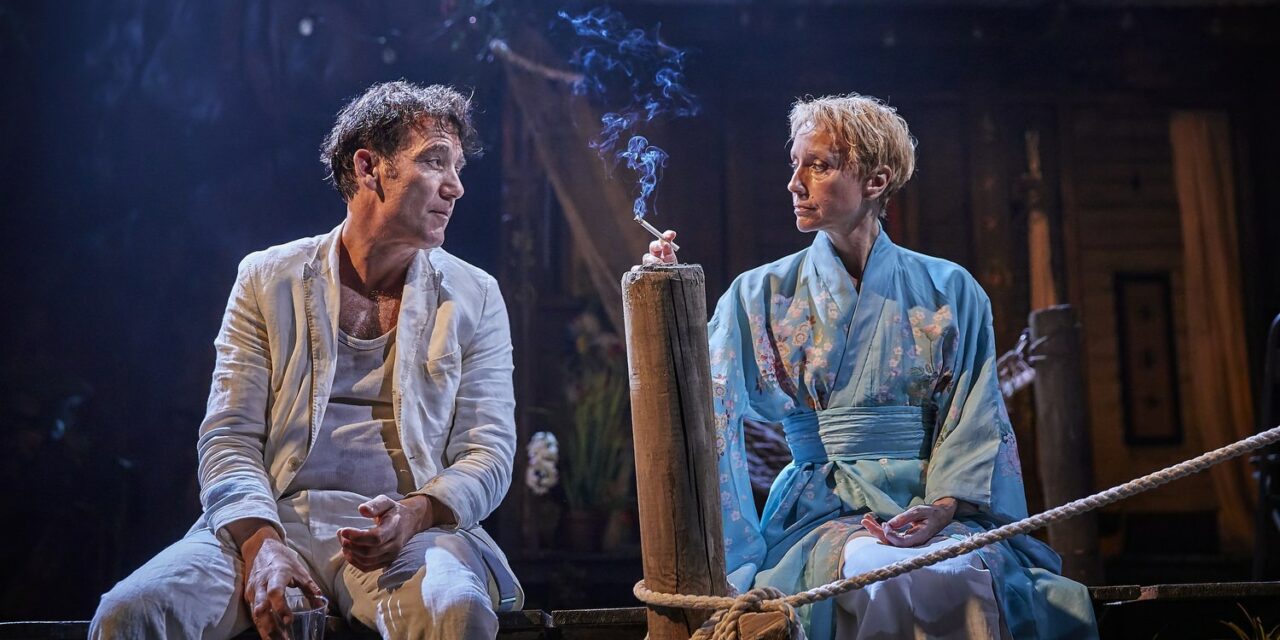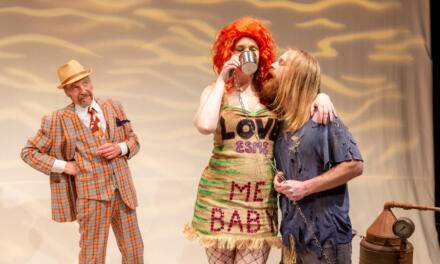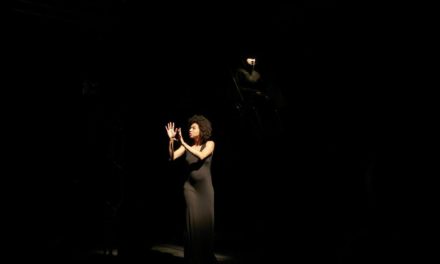A defrocked minister who botches up his job as a tour guide; a recently widowed hotel manager who leads a life of pleasure; and a penniless painter who travels with her 97-year-old grandfather. At a veranda on a windy hilltop, under the shadow of fluttering palm leaves, these three misfits take turns attracting and repelling one another. Their delicate dance of desire and solitude, of freedom and captivity, swelters against the sound of thunderstorms and the rustlings of a restless iguana.
It is, of course, a Tennessee Williams play. Set in Mexico in the 1940s, The Night of the Iguana hinges on the increasingly intimate encounter between Reverend Lawrence Shannon and the itinerant Hannah Jelkes. As their conversations run the course of a day and extend into the night, these two exiled souls weigh up the possibility that they might find a new home in each other. Like the iguana that their host Maxine has captured to serve at dinner, they yearn to untether themselves from their troubled histories and nervous conditions.
James Macdonald’s stately production of this 1961 play at the Noël Coward Theatre takes particular care to show how hard it is for them to cut those ties. Rae Smith’s picturesque set of a craggy hillside fronted by the rustic huts of Maxine’s hotel looks frozen in time and space. If it were not for the exquisitely modulating shadows of Neil Austin’s sunset-hued, thick lighting, one could mistake it for a painting. But this static look, dashed with vibrant colors and density of detail, is all too appropriate for the sense of suffocation experienced by the play’s characters. Macdonald’s actors inhabit this space with such knowing ease that they tend to blend into it.
Clive Owen’s Shannon is a weary—and somewhat wearying—man continually haunted by his mistakes and misadventures, but not without a slight penchant for self-mockery and histrionics. He is a walking mess prone to sudden outbursts, panic attacks, and enchantments by what he calls the “fantastic” (as opposed to the “realistic”). Owen’s performance sets store by Shannon’s mood swings, finding in them a potent symptom of his feverish mind.
The seeming contrast between Shannon and Lia Williams’ endlessly polite and delicate Hannah is a major animating force of Macdonald’s production. Williams proves utterly magnetic in her rendering of Hannah as a convincing incarnation of grace, sympathy, and sorrow. The gentle inflections of her speech and her tender physicality turn her character into an otherworldly presence caught in the grip of much coarseness. No wonder, then, that the scenes where Shannon and Hannah are left alone stand out from the rest by virtue of the highly charged dynamic between them.
The triangulating pressure comes from Maxine, who is figured by Anna Gunn as a woman of sensuous cunning. She looks carefree and accommodating most of the time, but Gunn also imbues her with an unnerving edge of possessiveness. This becomes beautifully evident when she insists on giving Hannah a hard time, trying to get rid of her. Hannah’s grandfather is played with impressive command by Julian Glover, whose recitations of poetry fuel some of the most moving scenes in the play. The rest of the cast, however, often appear to be acting on a higher register—one of overemphasized characteristics—which jars with the more intricate portrayals of the main parts.
This fever dream of a day, with its fair share of rum-cocos and swings on the hammock, is brought to life with a hectic intensity that throws into relief those moments of quiet desperation and longing. Macdonald does not shy away from big and loud gestures, especially in crowded scenes, but the payoff comes when everything is held in suspense, and we are left with two people slowly unpeeling their pasts for each other. It is in these luminous rituals of self-exposure and attempted connection that the lyrical texture of Williams’ play accrues its searing effect and hits one like a strike of lightning.
This post was written by the author in their personal capacity.The opinions expressed in this article are the author’s own and do not reflect the view of The Theatre Times, their staff or collaborators.
This post was written by Mert Dilek.
The views expressed here belong to the author and do not necessarily reflect our views and opinions.


















